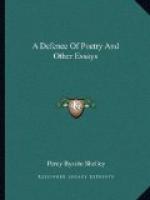[1815; publ. 1840]
ON THE PUNISHMENT OF DEATH
A FRAGMENT
The first law which it becomes a Reformer to propose and support, at the approach of a period of great political change, is the abolition of the punishment of death.
It is sufficiently clear that revenge, retaliation, atonement, expiation, are rules and motives, so far from deserving a place in any enlightened system of political life, that they are the chief sources of a prodigious class of miseries in the domestic circles of society. It is clear that however the spirit of legislation may appear to frame institutions upon more philosophical maxims, it has hitherto, in those cases which are termed criminal, done little more than palliate the spirit, by gratifying a portion of it; and afforded a compromise between that which is bests—the inflicting of no evil upon a sensitive being, without a decisively beneficial result in which he should at least participates—and that which is worst; that he should be put to torture for the amusement of those whom he may have injured, or may seem to have injured.
Omitting these remoter considerations, let us inquire what, death is; that punishment which is applied as a measure of transgressions of indefinite shades of distinction, so soon as they shall have passed that degree and colour of enormity, with which it is supposed no, inferior infliction is commensurate.
And first, whether death is good or evil, a punishment or a reward, or whether it be wholly indifferent, no man can take upon himself to assert. That that within us which thinks and feels, continues to think and feel after the dissolution of the body, has been the almost universal opinion of mankind, and the accurate philosophy of what I may be permitted to term the modern Academy, by showing the prodigious depth and extent of our ignorance respecting the causes and nature of sensation, renders probable the affirmative of a proposition, the negative of which it is so difficult to conceive, and the popular arguments against which, derived from what is called the atomic system, are proved to be applicable only to the relation which one object bears to another, as apprehended by the mind, and not to existence itself, or the nature of that essence which is the medium and receptacle of objects.
The popular system of religion suggests the idea that the mind, after death, will be painfully or pleasurably affected according to its determinations during life. However ridiculous and pernicious we must admit the vulgar accessories of this creed to be, there is a certain analogy, not wholly absurd, between the consequences resulting to an individual during life from the virtuous or vicious, prudent or imprudent, conduct of his external actions, to those consequences which are conjectured to ensue from the discipline and order of his internal thoughts, as affecting his condition in a future state.




